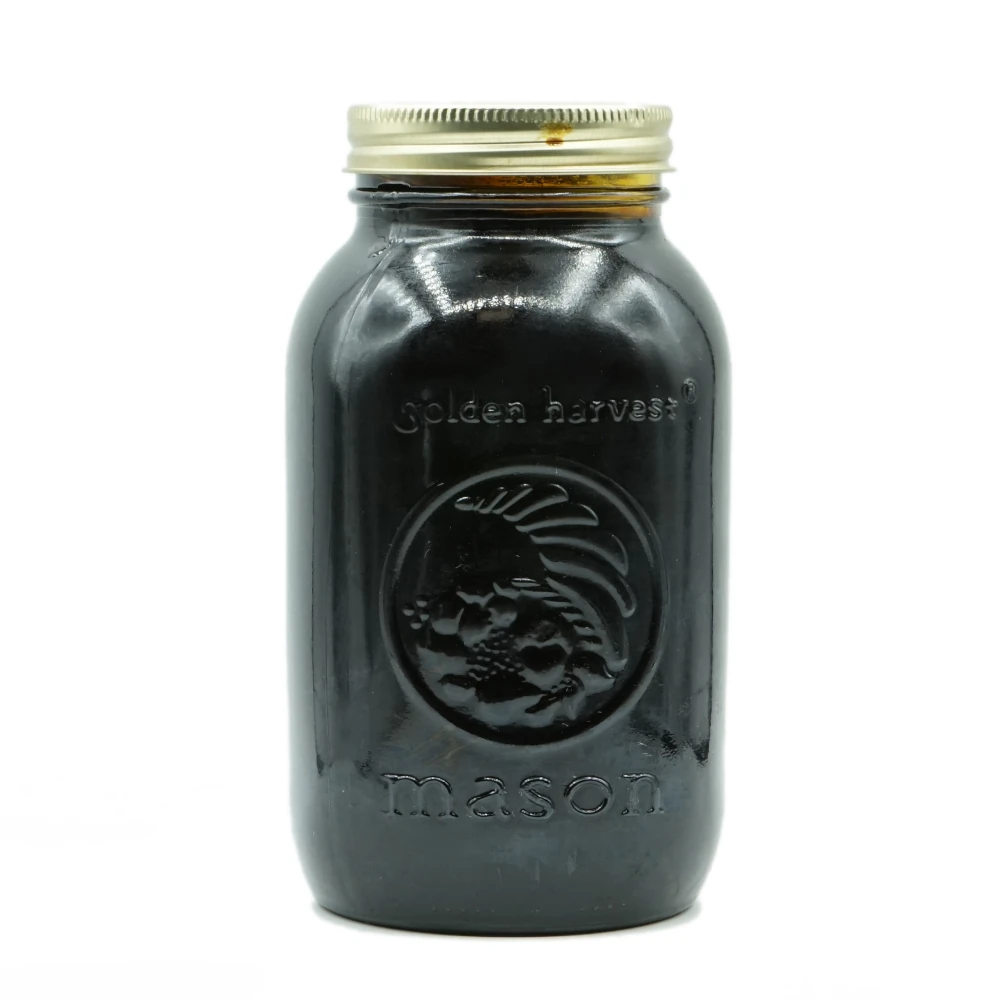| Subtotal | Items |
|---|---|
|
$175-249
→7 Grams
|

|
|
$250-399
→14 Grams
|

|
|
$400+
→28 Grams
|

|
Concentrates
RSO (Rick Simpson Oil): Benefits, Usage, and Storage Tips
Introduction: In recent years, the world of alternative medicine has seen a surge in interest surrounding Rick Simpson Oil (RSO). Named after its creator, Rick Simpson, this cannabis concentrate has gained popularity for its purported medicinal properties, particularly in managing chronic pain, cancer, and other debilitating conditions. In this comprehensive guide, we delve into the origins, composition, potential benefits, and usage of RSO.
What Is RSO (Rick Simpson Oil)?
Rick Simpson, a Canadian medical marijuana activist, is credited with popularizing RSO as a potent medicinal oil. In 2003, Simpson claims to have cured his own skin cancer using homemade cannabis oil, sparking his advocacy for its widespread use. Since then, he has promoted RSO as a natural remedy for various ailments, garnering attention from patients and researchers alike.
How Is Rick Simpson Oil Made?
RSO is a highly concentrated cannabis oil extracted from the marijuana plant. The oil is typically rich in cannabinoids, particularly tetrahydrocannabinol (THC) and cannabidiol (CBD), along with other beneficial compounds such as terpenes and flavonoids. The extraction process involves soaking cannabis plant material in a solvent, such as ethanol or isopropyl alcohol, to dissolve the cannabinoids and other compounds. The resulting solution is then evaporated to produce a thick, resinous oil.
Potential Benefits of RSO:
Advocates of RSO claim a wide range of potential benefits for various health conditions. Some of the most commonly cited benefits include:
- Pain Management: RSO is often used to alleviate chronic pain associated with conditions such as arthritis, multiple sclerosis, and neuropathy. THC, the primary psychoactive compound in cannabis, is believed to modulate pain perception by interacting with the body’s endocannabinoid system.
- Cancer Treatment: Perhaps the most controversial claim surrounding RSO is its potential as a cancer treatment. While scientific evidence supporting its efficacy is limited, some anecdotal reports and preliminary studies suggest that cannabinoids like THC and CBD may have anti-cancer properties, including inhibiting tumor growth and inducing cancer cell death.
- Anxiety and Depression: RSO may offer relief for individuals struggling with anxiety, depression, and other mood disorders. CBD, in particular, has shown promise as an anxiolytic and antidepressant compound, potentially modulating serotonin levels and promoting relaxation.
- Neurological Disorders: Conditions such as epilepsy, Parkinson’s disease, and Alzheimer’s disease may benefit from RSO due to its neuroprotective and anti-inflammatory properties. CBD, in particular, has garnered attention for its ability to reduce seizures in epilepsy patients and potentially slow the progression of neurodegenerative diseases.
How To Use RSO (Rick Simpson Oil)
- Oral Ingestion: The most straightforward method is to consume RSO orally. Patients can ingest the oil directly by placing a small amount under the tongue and holding it there for a minute or two before swallowing. Alternatively, RSO can be mixed with food or beverages, such as yogurt, smoothies, or tea, to mask its strong taste.
- Capsules: For those who prefer a more discreet and convenient option, RSO can be encapsulated. Patients can measure out the desired dosage and fill empty capsules with the oil, making it easier to track intake and avoid the taste associated with oral ingestion.
- Topical Application: RSO can also be applied topically to the skin, particularly for localized pain relief or skin conditions. Patients can rub a small amount of oil directly onto affected areas, such as sore muscles, inflamed joints, or skin lesions. The cannabinoids and other compounds in RSO may exert anti-inflammatory and analgesic effects when absorbed through the skin.
- Suppositories: In some cases, patients may opt for rectal or vaginal suppositories as a method of administering RSO. This route of administration allows for efficient absorption of cannabinoids into the bloodstream, bypassing the digestive system and potentially providing rapid relief for conditions such as severe pain or nausea.
- Sublingual Tinctures: Similar to oral ingestion, RSO can be incorporated into sublingual tinctures for rapid absorption through the mucous membranes under the tongue. Patients can use a dropper to dispense a precise dosage of RSO tincture, holding it under the tongue for faster onset of effects before swallowing.
Dosage: Determining the appropriate dosage of RSO can be challenging due to its high potency and individual variability in tolerance and response. Here are some general guidelines for dosing:
- Start Low and Go Slow: It’s essential to begin with a low dose of RSO, typically the size of a grain of rice, and gradually increase as needed. This approach allows patients to gauge their tolerance and assess the effects of the oil on their symptoms without experiencing overwhelming side effects.
- Titration: Patients should titrate their dosage carefully, paying attention to how their body responds to different amounts of RSO. Factors such as body weight, metabolism, and the severity of symptoms can influence the optimal dosage. It’s advisable to keep a journal to track dosage, effects, and any side effects experienced.
- Consult with Healthcare Professionals: It’s crucial for patients to consult with healthcare professionals experienced in cannabis medicine to determine the appropriate dosage for their specific condition and individual circumstances. Healthcare providers can offer personalized guidance and monitor patients for any adverse effects or interactions with other medications.
- Considerations for Medical Conditions: Patients with certain medical conditions, such as cancer or chronic pain, may require higher doses of RSO to achieve therapeutic effects. However, it’s important to balance efficacy with safety and minimize the risk of side effects, such as psychoactivity or sedation.
Is RSO Safe And Legal To Use?
While RSO is generally considered safe for most individuals, there are potential risks and considerations to be aware of. The high THC content may cause psychoactive effects, including euphoria, paranoia, and impaired cognition, particularly in sensitive individuals or those unaccustomed to cannabis use. Additionally, RSO may interact with certain medications, so it’s crucial to disclose its use to healthcare providers.
From a legal standpoint, the legality of RSO varies depending on the jurisdiction. In regions where medical and recreational cannabis is legal, RSO may be obtained from licensed dispensaries with a doctor’s recommendation. However, in areas where cannabis remains illegal, obtaining or producing RSO may carry legal consequences.
In conclusion, Rick Simpson Oil (RSO) provides patients with a versatile and potent option for managing various health conditions. By exploring different methods of administration and carefully titrating dosage, patients can harness the therapeutic potential of RSO while minimizing the risk of adverse effects. As with any medication, it’s essential to consult with healthcare professionals and approach its usage with caution and informed decision-making.
FAQ
- What is RSO (Rick Simpson Oil), and how does it differ from other cannabis extracts?
RSO, or Rick Simpson Oil, is a highly concentrated cannabis extract known for its rich cannabinoid content, notably THC (tetrahydrocannabinol) and CBD (cannabidiol). It differs from other cannabis extracts due to its specific extraction method, which involves soaking cannabis plant material in a solvent like ethanol or isopropyl alcohol to extract the desired compounds. The resulting oil is typically thick and resinous, containing a potent combination of cannabinoids, terpenes, and flavonoids. - What medical conditions can RSO potentially treat, and how effective is it?
RSO is believed to have potential benefits for various medical conditions, including chronic pain, cancer, neurological disorders, and mental health issues like anxiety and depression. While scientific evidence supporting its efficacy is still evolving, many individuals report positive experiences with RSO, citing relief from symptoms and improved quality of life. However, it’s essential to consult healthcare professionals for personalized advice and treatment plans. - What are the potential side effects of using RSO, and how can they be managed?
Like any medication, RSO may have potential side effects, particularly due to its high THC content. Common side effects might include dizziness, dry mouth, increased heart rate, and changes in mood or cognition. Some individuals may also experience psychoactive effects like euphoria or anxiety. These side effects can often be managed by starting with a low dose, gradually titrating up, and closely monitoring for adverse reactions. Consulting with healthcare professionals is recommended for guidance on managing side effects. - What is the best method for storing RSO to maintain its potency and freshness?
Proper storage is essential to maintain the potency and freshness of RSO. It’s best to store RSO in a cool, dark place away from direct sunlight and heat sources. Additionally, keeping it in an airtight container can help prevent exposure to air, which can degrade the cannabinoids over time. Refrigeration may also be beneficial, especially in warmer climates, but it’s important to allow the oil to come to room temperature before use to ensure optimal consistency. - Can RSO be used alongside other complementary therapies or treatments?
Yes, RSO can often be used alongside other complementary therapies or treatments, depending on individual circumstances and medical conditions. Many patients incorporate RSO into their wellness routines alongside conventional medications, dietary supplements, and lifestyle interventions. However, it’s essential to consult healthcare professionals to ensure compatibility and avoid potential interactions between different treatments. Collaboration between healthcare providers can help develop comprehensive treatment plans tailored to individual needs.








